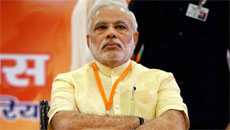India’s public sector banks had the “worst phase” under the “combination” of former prime minister Manmohan Singh and ex-RBI governor Raghuram Rajan, and giving the ailing banks a “lifeline” was her primary duty now, Finance Minister Nirmala Sitharaman has said.
The public sector banks have been grappling with bad loans and the government has been taking measures to address the issue. In August, the government announced upfront capital infusion to the tune of Rs 70,000 crore into the public sector banks. Besides, 10 public sector banks are being consolidated into four.
Delivering a lecture at the prestigious Columbia University’s School of International and Public Affairs here on Tuesday, Sitharaman said: “While economists can take a view of what prevails today or prevailed years ago, but I will also want answers for the time when Rajan was in the Governor’s post speaking about the Indian banks, for which today to give a lifeline is the primary duty of the Finance Minister of India. And the lifeline-kind of an emergency has not come overnight”.
“I do respect Raghuram Rajan as a great scholar who chose to be in the central bank in India at a time when the Indian economy was all buoyant,” she said during the lecture organised by the Deepak and Neera Raj Centre on Indian Economic Policies of the Columbia University.
Asked about the ex-RBI governor’s comments during a recent lecture at Brown University in which he had apparently mentioned that in its first term, the Narendra Modi government had not done better on the economy because the government was extremely centralised and the leadership does not appear to have a consistent articulated vision on how to achieve economic growth, the minister said instead there were major issues with bank loans during Rajan’s tenure as the central bank head.
Responding to the question, Sitharaman further pointed out that if there is a feeling that there’s been a centralised leadership now, “I’d like to say that very democratised leadership led to a whole lot of corruption. Very democratised leadership. The Prime Minister, after all is the first among equals in any cabinet.”
“You need to have a country as diverse as India with an effective leadership. A rather too democratic leadership, which probably will have the approval of quite a lot of liberals, I’m afraid, left behind such a nasty stink of corruption, which we are cleaning up even today,” she said.
“It was in Rajan’s time as Governor of the RBI that loans were given just based on phone calls from crony leaders and public sector banks in India till today are depending on the government’s equity infusion to get out of that mire,” she said.
“Dr Singh was the Prime Minister and I’m sure Dr Rajan will agree that Dr Singh would have had a ‘consistent articulated vision’ for India,” the minister said amid laughter from the audience.
“With due respect, I’m not making fun of anybody but I certainly want to put this forward for a comment which has come like this.
“I have no reason to doubt that Rajan feels for every word of what he is saying. And I’m here today, giving him his due respect, but also placing the fact before you that Indian public sector banks did not have a worst phase than when the combination of Singh and Rajan, as Prime Minister and the Governor of the Reserve Bank, had. At that time, none of us knew about it,” she said.
Sitharaman said while she is grateful that Rajan did an asset quality review, but people should know what makes the banks ailing today.
“I am grateful that Rajan did an asset quality review but I’m sorry, can all of us put together also think of asking what ails our banks today. Where has it been inherited from,” she said.
According to RBI data in June on global operations (provisional data for the financial year ending March 2019), Gross Non-Performing Assets (NPAs) of Public Sector Banks have declined by Rs. 89,189 crore from the peak of Rs. 8,95,601 crore in March 2018 to Rs. 8,06,412 crore in March 2019 (provisional data).
The event was also attended by former NITI Aayog Vice Chairman Arvind Panagariya, professor and eminent economist Jagdish Bhagwati and India’s Consul General in New York, Sandeep Chakravorty.
